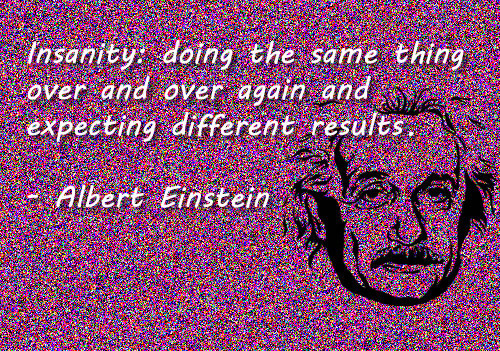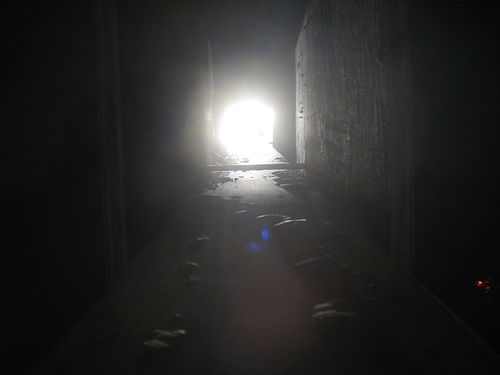Listen to the 11-minute podcast version
Watch a 1-minute introductory video
Preventing addiction is one of the most important and promising life improvement initiatives in the world today, enough so I felt compelled to start STEPS Ministries to help champion the cause.
Based on the tragic impact addiction continues to have, decade after decade, it has become clear that we need to do something different than what we have been doing. Prevention is the answer, and it is neither a fad nor a gimmick. It is the next generation of addiction treatment!

The Role of Prevention
Addiction is one of the world’s toughest problems, but evidence shows prevention can work. It does not replace recovery, because that is important work that has saved and improved millions of people’s lives. But reaching people earlier in the addiction cycle can help even more.
STEPS Ministries is uniquely focused on the prevention of addiction. The many people I’ve talked to agree it makes sense to help avoid the pain of substance abuse rather than waiting until someone crashes and burns to offer them treatment.
Prevention means stopping something from happening. But what does that mean for addiction? More importantly, how do we do it? We can help address some of those answers by learning from advancements being made in other areas of healthcare.
An ounce of prevention is worth a pound of cure. (Benjamin Franklin)
Learning from Healthcare
The CDC is the leading national public health institute in the United States. Few people realize, however, that its full name is the Centers for Disease Control and Prevention.
Modern healthcare is changing, and many people may not be aware of it. It is moving toward more proactive treatment before illnesses get too serious.
The right preventive care at every stage of life helps all Americans stay healthy, avoid or delay the onset of disease, keep diseases they already have from becoming worse or debilitating, lead productive lives, and reduce costs. (“Preventative Health Care” by the Centers for Disease Control and Prevention)
The Surgeon General of the United States agrees and believes this holds true for addiction as well:
Few would disagree with the notion that preventing substance use disorders from developing in the first place is ideal. Prevention programs and policies are available that have been proven to do just that. (The Surgeon General’s Report)
Building a Prevention Program
Cancer is a disease that is progressive and sometimes fatal. But, caught early enough, it can often be treated successfully, and even prevented.
Addiction works the same way, because it also is: (a) a disease; (b) progressive; (c) sometimes fatal; (d) treatable and even preventable. But we have not chosen to invest significantly in prevention.
Addiction is a preventable, chronic disease. (Hazelden Betty Ford Foundation)
As cancer progresses, it moves through a series of stages if not treated effectively. Addiction is also progressive with successive stages marked by symptoms such as:
- Stage 1: We don’t cope with life well and form bad habits but don’t see them as dangerous.
- Stage 2: Negative thinking spreads to other areas, and we become more self-absorbed and impulsive, but we rationalize the negative aspects of our condition.
- Stage 3: We face negative consequences in surrounding areas of our life, become more compulsive, and avoid treatment through our own denial and isolation.
- Stage 4: Full addiction sets in, and our overall well-being—even our life—may be in jeopardy.
Too often, the practice of medicine in the United States is focused on treatment. But what if we doctors changed how we think about battling disease? What if we focused on prevention, rather than treatment? (“Changing the Focus of Healthcare: From Treatment to Prevention”)
For many diseases, preventive care includes health services like screenings, check-ups, and patient counseling that are used to prevent illnesses, or to detect them at an early stage when treatment is likely to work best. Getting preventive services and making healthy lifestyle choices are key steps to good health and well-being. We need to do the same types of things for addiction.
There are more people with substance abuse disorders than people with cancer. There are prevention strategies and treatment strategies that can address multiple substance use disorders. The problem that we have right now is that we’re not implementing many of these evidence-based interventions.(“Surgeon General Murthy Wants America To Face Up To Addiction” in NPR)
The Next Generation of Addiction Treatment
Can we learn some key lessons from what’s happening in healthcare? What can we do to have an impact on addiction that is different from what we have been doing? And how do we do it? We’ll answer those questions across 5 key phases of prevention:
Preparation: Developing an integrated lifestyle and a holistic wellness approach.
- Lesson from healthcare: Training on overall life wellness.
- What we do differently: Prevention using a holistic approach.
- How we do it: Provide information and training in 3 integrated areas:
- Spiritual – Faith in God and ongoing guidance from the Holy Spirit.
- Emotional – Resilience principles that can be learned and practiced.
- Personal – Self-worth and being comfortable in our own skin.
Awareness: Diagnosis and preventative action earlier in the disease cycle.
- Lesson from healthcare: Testing and screening to enhance early diagnosis.
- What we do differently: Taking preventative action earlier in the cycle.
- How we do it:
- Communications (e.g. blogs, videos, podcasts, and online information) – Expand our self-awareness, understand addiction as a disease, and accept personal responsibility.
- Tools and assessments – Methodologies to help us assess our life trajectory.
Connection: Informed support and help from other people.
- Lesson from healthcare: Regular medical counseling by doctors.
- What we do differently: Involving other people in prevention.
- How we do it:
- Prevention programs – For parents (through churches), employees (through companies), students (through schools), and individuals (online) with an approach emphasizing grace, vulnerability, and love rather than judgement, shame, and control.
- Coaching – Provide confidential counseling and accountability.
Education: Teaching “how to” methods to manage life well.
- Lesson from healthcare: Increased availability of healthcare information.
- What we do differently: Teaching practical “how to” methodologies.
- How we do it:
- Seminar training – Spot warning signs and understand triggers and how to respond.
- Tools and information – Help us alter risky behaviors and build positive habits.
Steps: Purposeful life planning and proactive intervention.
- Lesson from healthcare: Having a plan for the prevention of disease.
- What we do differently: We must be proactive rather than reactive.
- How we do it:
- Life planning process – Process and guidance to build a recovery or “pre-covery” plan.
- “Vaccination-like” approach – Teach how to address behaviors that lead to addiction.
It turns out our behaviors – shaped by our physical and social environments – are the primary determinants of health and well-being. Prevention can reduce the risk factors that lead to chronic diseases, slow their progression, improve overall health and reduce health care spending. (“The Power of Prevention” in U.S. News & World Report)
Prevention programs help people live in a purposeful manner, increase their resilience, and address the factors that can lead them toward addiction before they reach the crisis stage.
Prevention is the next generation of addiction treatment. And it works.
Question: What role can you play to help people prevent addiction?
Action: Read the STEPS Journey Blog and share articles with others.
Photo by Mimsen  Photo by Wetsun
Photo by Wetsun  Photo by Sacred Heart Rehabilitation Center
Photo by Sacred Heart Rehabilitation Center  Photo by Find Rehab Centers
Photo by Find Rehab Centers 



